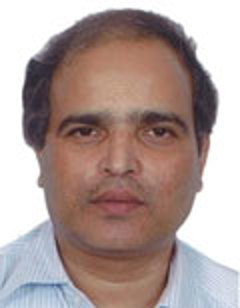Das, A. K.
Asit K. Das is the Head of Refinery R&D and Process Development of Reliance Industries Ltd. in Jamnagar, India. He has more than 33 yr of research experience in refining and petrochemical segments. He has developed and commercialized many processes and has more than 80 patents, 70 publications and five book chapters to his credit. He has guided several PhD and MTech theses and board members in advisory council for several academic institutions. He is also the current President of the Engineering Science section to organize the Indian Science Congress 2020.
A critical analysis of CO2 capture technologies
The use of fossil fuels as a source of energy continues to add carbon dioxide to the atmosphere, causing detrimental effects to the environment.
Minimize energy consumption in water treatment with forward osmosis technology—Part 2
Heavy industries like refining, petrochemicals and mining face concerns about the availability of freshwater, as these are affected by local water scarcities and stringent water discharge regulations.
Minimize energy consumption in water treatment with forward osmosis technology—Part 1
Heavy industries like refining, petrochemicals and mining have concerns about the availability of fresh water, as these are affected by local water scarcities and stringent water discharge regulations.
Determine root causes of undesirable petcoke properties from the DCU
The delayed coking unit (DCU) is the technology of choice for the upgrade of heavy hydrocarbon residues—i.e., bottom-of-the-barrel upgrading.
Optimize slop-wax bed height in the vacuum unit
The vacuum distillation (VD) unit in the petroleum refinery separates the heavier fraction of crude oil from the atmospheric distillation unit (ADU) into light vacuum gasoil (LVGO) and heavy VGO (HVGO..
Achieve uniform heat flux in a coker furnace
A delayed coker unit thermally cracks vacuum residue (VR) and converts it into products like liquefied petroleum gas (LPG), naphtha, gasoil and petroleum coke. A majority of the thermal cracking takes..
- 1
- ... 1 pages

- BASF supports European 1,4‑butanediol supply security through increased production in Ludwigshafen 2/16
- Vitol backs proposed $3-billion LNG power plant for South Africa's Durban port 2/16
- HAMR Energy receives additional funding for low-carbon liquid fuels projects 2/16
- Geoinform, subsidiary of the MOL Group, signs strategic cooperation agreement with Baker Hughes 2/16
- Hungary asks Croatia for help after Russian oil flows via Ukraine halted 2/16
- U.S. refiner Valero to import up to 6.5 MMbbl of Venezuelan crude in March 2/16





